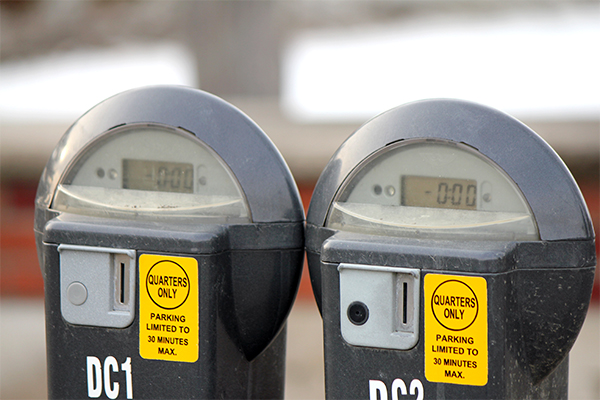
A recent policy proposal could raise the stakes for drivers at Binghamton University who decide that violating parking regulations is worth the risk.
The Parking Advisory Committee, which oversees regulations regarding on-campus parking, is considering a proposal that could increase fines for violations — from parking without a permit to parking in a fire safety zone — to as much as twice their current rates.
Daniel Chambers, Deputy Chief of Police with Binghamton’s New York State University Police, said Thursday that though the fines may increase, the proposals did not include plans to increase the price of a BU parking permit.
“If you buy your permit and you park legal, these things won’t affect you at all,” said Chambers, who also sits on the Parking Advisory Committee.
Violations that currently carry $25 fines, such as failing to display a parking permit, parking in a tow-away zone or parking on the grass, could see increases to $40. Fines for violations that currently carry $50 penalties, such as parking in a fire safety zone or parking in a disabled zone, could increase twofold to $100 if the proposals were to pass unaltered.
But Student Association President Jared Kirschenbaum said he plans to mount a degree of resistance to the changes.
“I’m going to voice my opinions against them,” Kirschenbaum said.
He added that though he was not opposed to the idea of increasing the rates altogether, he was against the degree of change.
“There are certain increases that I see warranted that are of benefit to campus for various reasons,” he said, remarking that he was willing to accept the increases to fire zone and disabled zone violations because those involved safety concerns.
Kirschenbaum said he hoped he would be able to negotiate to make the increases less drastic. But Chambers said that he thought the suggested increases were reasonable, and he seemed committed to the proposal in its current form.
Though some may feel that the spike in fines is extreme, Chambers noted that fines have not increased in 10 years and that there were a host of circumstances that warranted the change.
He acknowledged that the increase was, in part, a response to budget pressure from factors such as rising salaries.
“The budget drives many things,” Chambers said.
Chambers also said that an examination of parking fines in other similar environments was a key component in the assessment of how rates should be adjusted.
In the town of Vestal, the fine for parking in a handicapped-reserved spot is $80, compared to BU’s proposed $100. The same fine is already $100 at SUNY Cortland, Stony Brook University, the University at Albany and Syracuse University. All these are lower than the SUNY-wide maximum charge of $150.
These changes could also add a new fine for a new violation, which, in the language of the proposal, would be for “parking while displaying a stolen, forged, altered or illegally obtained parking permit or registration decal.”
Chambers said this was a response to recent increases in these types of practices. He said that drivers are more frequently using parking permits that do not belong to them — there were recently six cases of this in a single day — and that forgeries of parking permits were problematic as well.
Before it would become an official policy, the proposal would have to be approved by the BU Council, which will meet in March for the first time this year.


